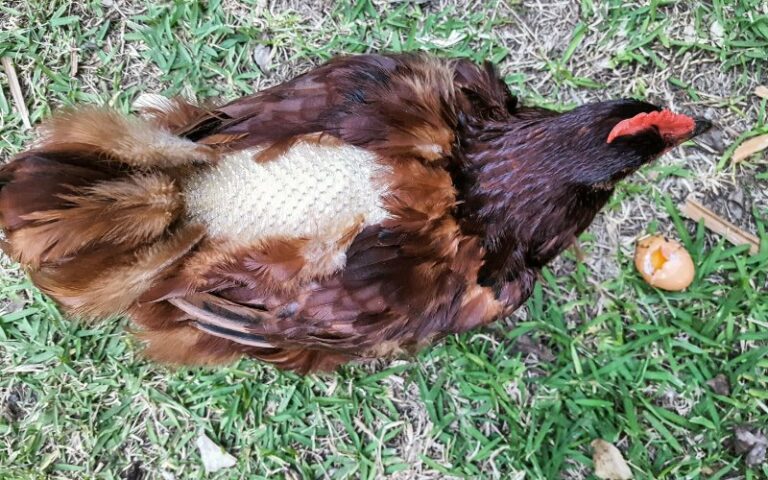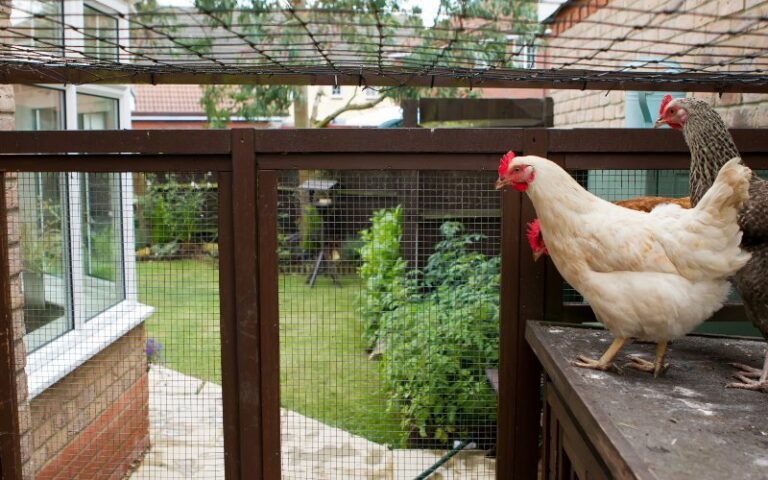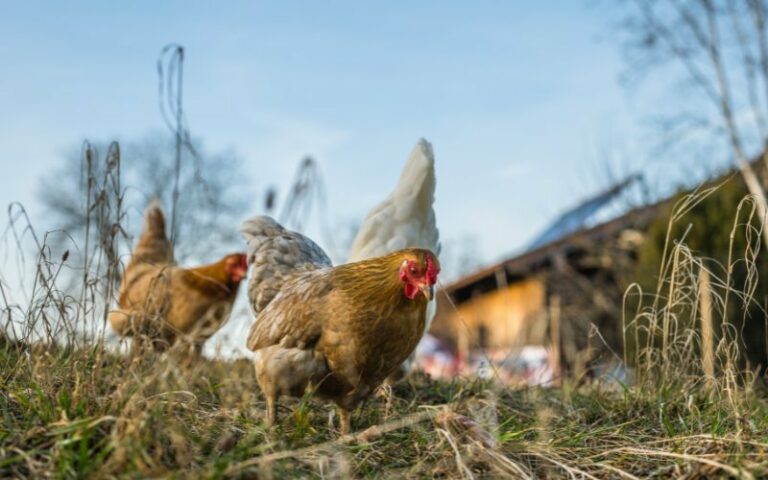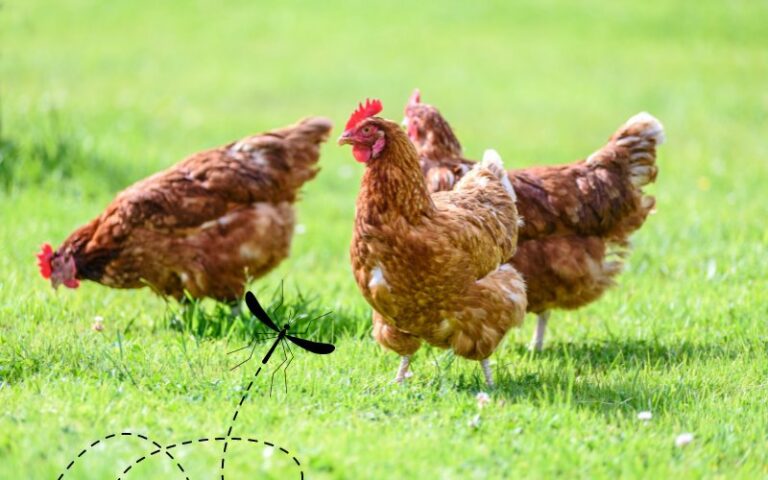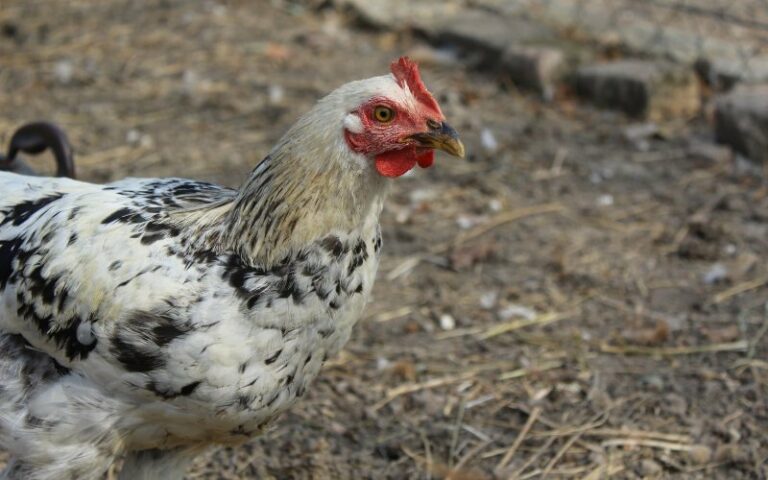Rooster Crowing At Night (Should You Be Concerned?)
I’ve owned roosters who were more or less punctual about crowing on time. Like many other birds, roosters typically sing at sunrise with a familiar cock-a-doodle-doo sound. But sometimes you’ll get one that crows randomly at night. That should sound a little wrong, even to those who don’t own a rooster.
Whether or not you’re concerned about your rooster’s nocturnal calls, they’re probably annoying. After all, a rooster is nearly synonymous with an alarm clock – and no one enjoys it when an alarm goes off in the middle of the night, especially one that can’t be snoozed or shut off.
Rooster owners typically notice right away that roosters don’t just crow at dawn; they’ll often crow at intervals throughout the entire day. However, roosters don’t generally crow at night because that’s when they sleep. To find out the meaning of your rooster crowing at night – and if you should try to stop him – you’ll need to understand the reasons why roosters crow.
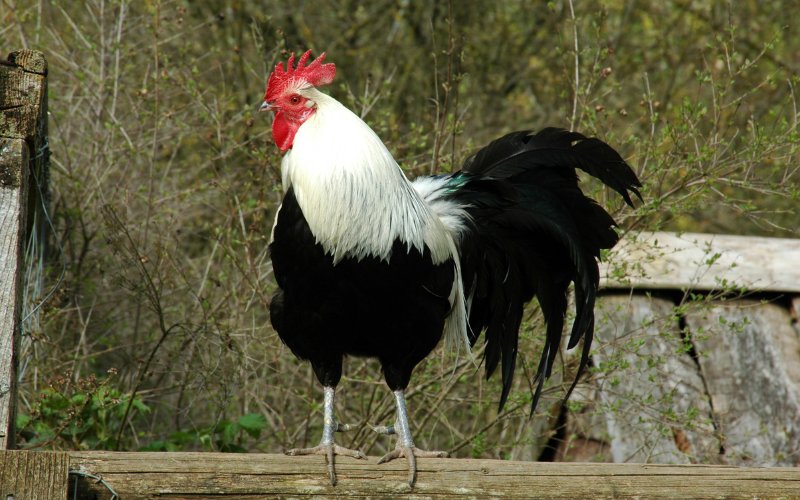
Why Do Roosters Crow At Night (The Short Answer)
Roosters sleep during the night, but often crow throughout the day. If your rooster is crowing at night, that means that something’s woken them up, whether that’s the faint light of an early sunrise, bright lights that trick them into thinking that it’s daytime, or a sense of danger from a potential predator. Nighttime crowing might also result from personality or a random desire to communicate with other chickens.
What a Rooster Crowing At Night Can Indicate (7 Explanations)
Roosters crow for a number of reasons, but don’t usually crow at night because that’s when they’re sleeping. However, here are some common causes of nightly rooster noise.
It’s Almost Dawn
Roosters can actually sense when the dawn is approaching because the sky starts to lighten long before the sun comes up. As a result, roosters may crow up to two hours before dawn. And, in the summertime, dawn can occur pretty early in the morning – which may cause your roosters to crow as early as 3:30 a.m., which is practically the middle of the night.
Confusion From Bright Lights
Bright lights can wake roosters up and make them think that it’s morning. Whether it’s from a heat lamp, house lights, or vehicle headlights, bright lights can cause confusion among roosters, and, consequently, crowing in the middle of the night.
Potential Threats
Because roosters are naturally protective of their hens, they will alert them of sensed danger by crowing. Crowing also serves to let any potential predator know that there’s a rooster present and that he intends to guard his flock.
Communication With His Flock
Sometimes, if a rooster is awake, he just wants to talk to someone. As a result, though roosters often crow to warn other chickens of danger, they’ll sometimes crow to let them know everything’s okay.
Usually, roosters crow to attract a mate primarily in the daytime, but it can happen at night as well.
Unexpected Sounds
Unexpected sounds can awaken a rooster and cause him to respond. Whether or not he perceives the sound as a threat, sometimes roosters simply want to answer the sounds they hear.
Other roosters making noise in the middle of the night could also cause a ripple effect of sound.
Assertion of Authority
Roosters often crow to remind other roosters that they’re in charge. If the other roosters don’t agree, it can quickly devolve into a crowing match and even a fight. These squabbles tend to happen during the day, but there are no rules against doing it at night. Also, roosters may crow to let other birds know where their territory is.
Personality
Sometimes roosters just feel like crowing, and some roosters are simply more talkative than others. They might crow to communicate with other animals or simply when other roosters crow. Occasionally, you’ll get a rooster who simply enjoys making a ruckus in the middle of the night.
Do I Need to Do Anything If My Rooster Crows At Night?
That depends on a few factors. Ask yourself the following questions:
- Is your rooster significantly louder at night? Your rooster might be responding to predators that only prowl at night. You may not have to do anything to ensure the safety of your flock if they’re already enclosed in a sturdy coop, but keep in mind that there could be greater safety risks for your chickens at night.
- Did the noise start abruptly? Did it get worse as the rooster got older? Or is your rooster loud in the daytime as well as during the night? The answers to these questions could give you a clue as to what’s prompting all the noise. If the noise starts suddenly or occurs randomly, keep an eye out for predators by looking for tracks and signs of break-in attempts. If the rooster steadily gets louder or has always been loud, it’s probably a personality problem.
- Could light from the sun or other sources be causing your rooster to think that it’s morning? In that case, try making sure house and garage lights are off during the night, as well as heat lamps and any other nearby light sources. This may help, but if the rooster is simply sensing the sunrise, there’s not much that you can do.
- Do you have multiple roosters that often fight with each other? Crowing matches can cause a lot of noise. Consider separating roosters in different enclosures or getting rid of a few.
- Is the noise too disruptive to live with? If it’s getting to the point where you (or your neighbors) can’t stand the noise, then you should do something. However, exactly what you can do is limited. If your rooster is noisy 24/7, then you probably just got one with a loud personality and there’s not much to be done. Consider selling it, trading it with another homesteader, or, if you have enough land, moving it further away so the sound isn’t as disruptive.

